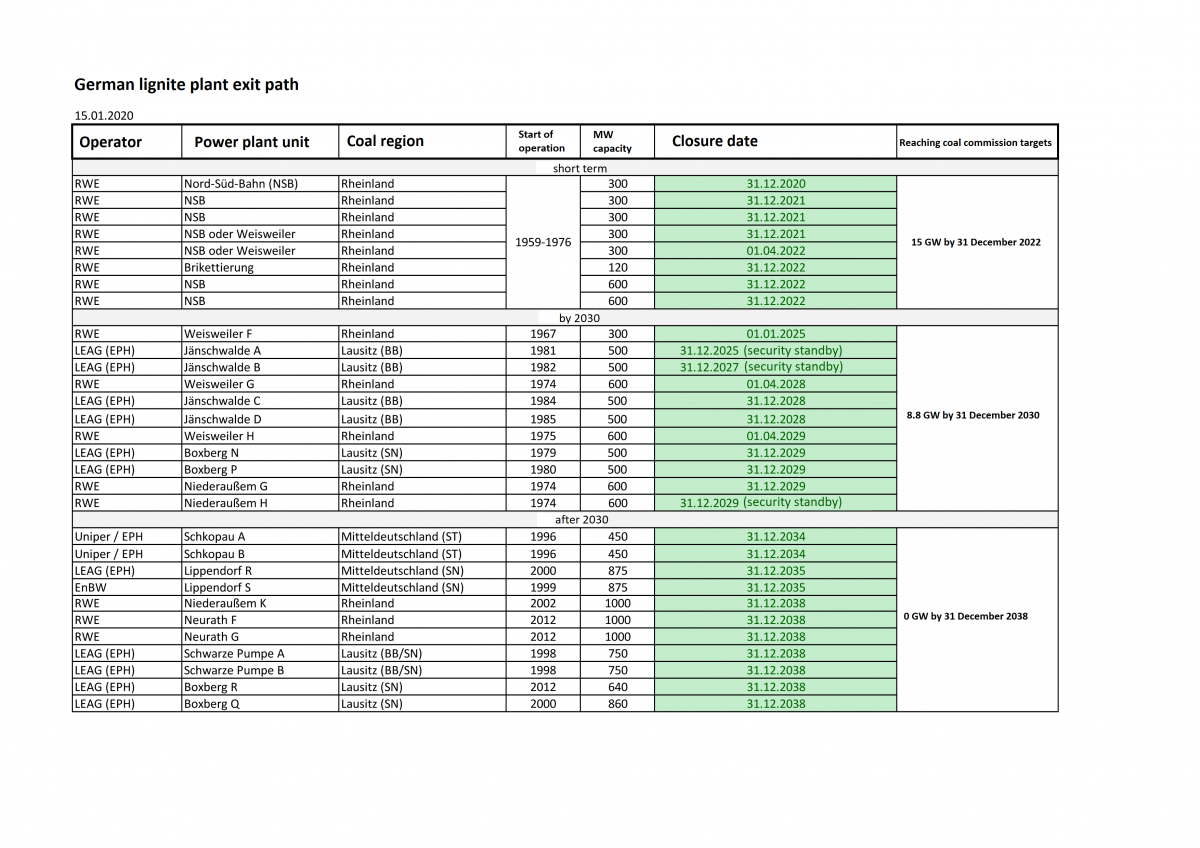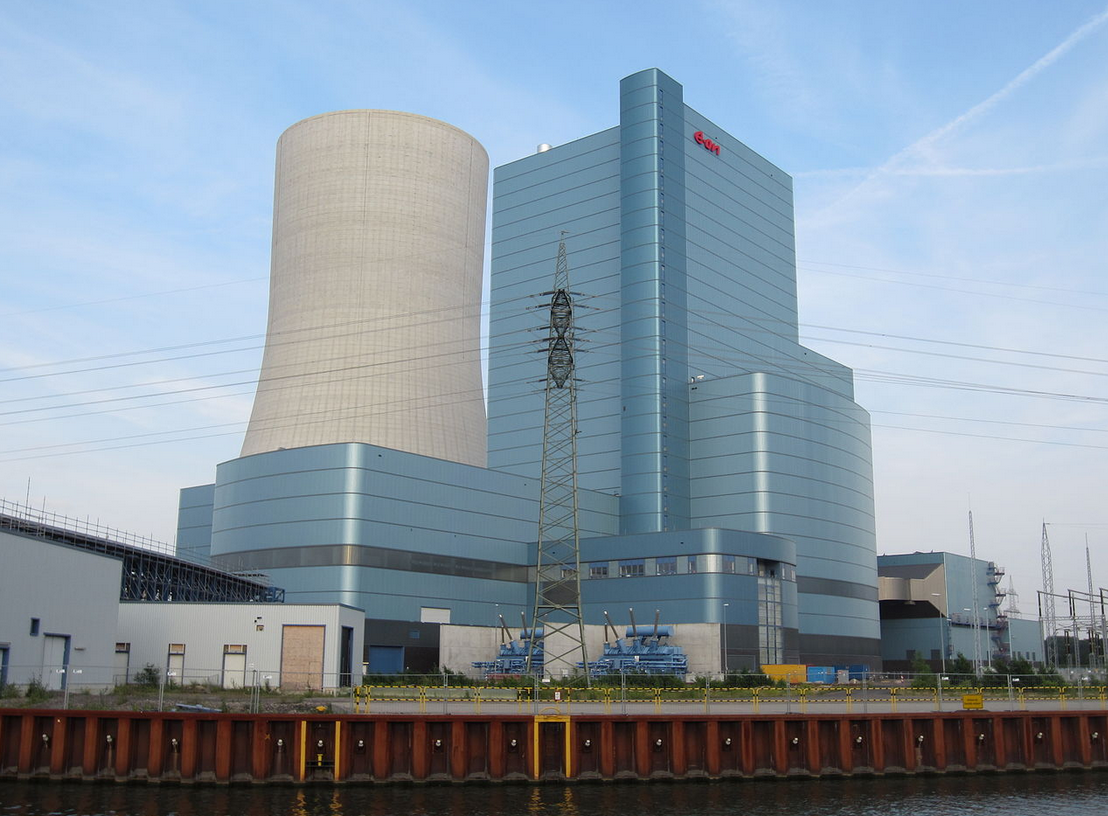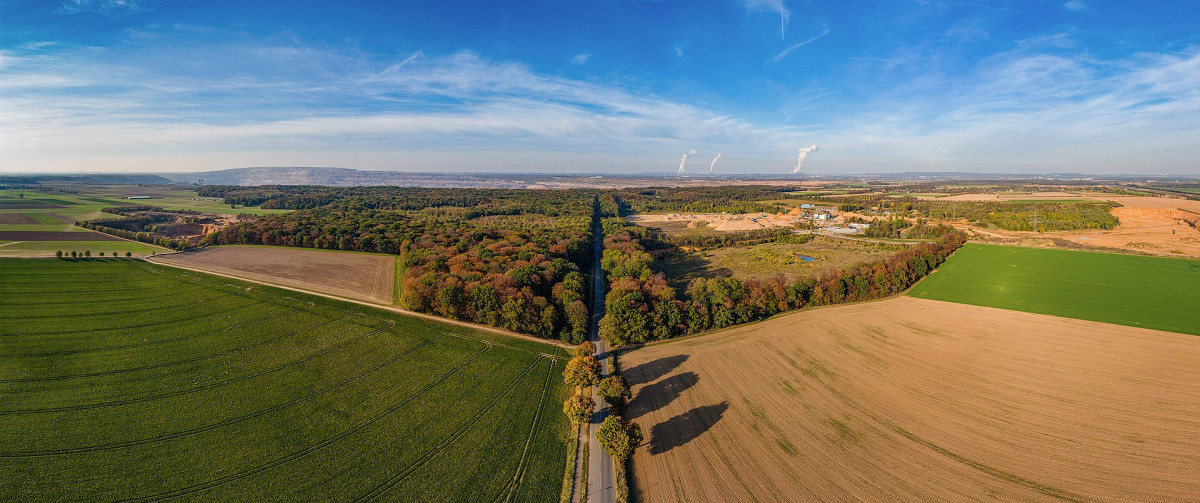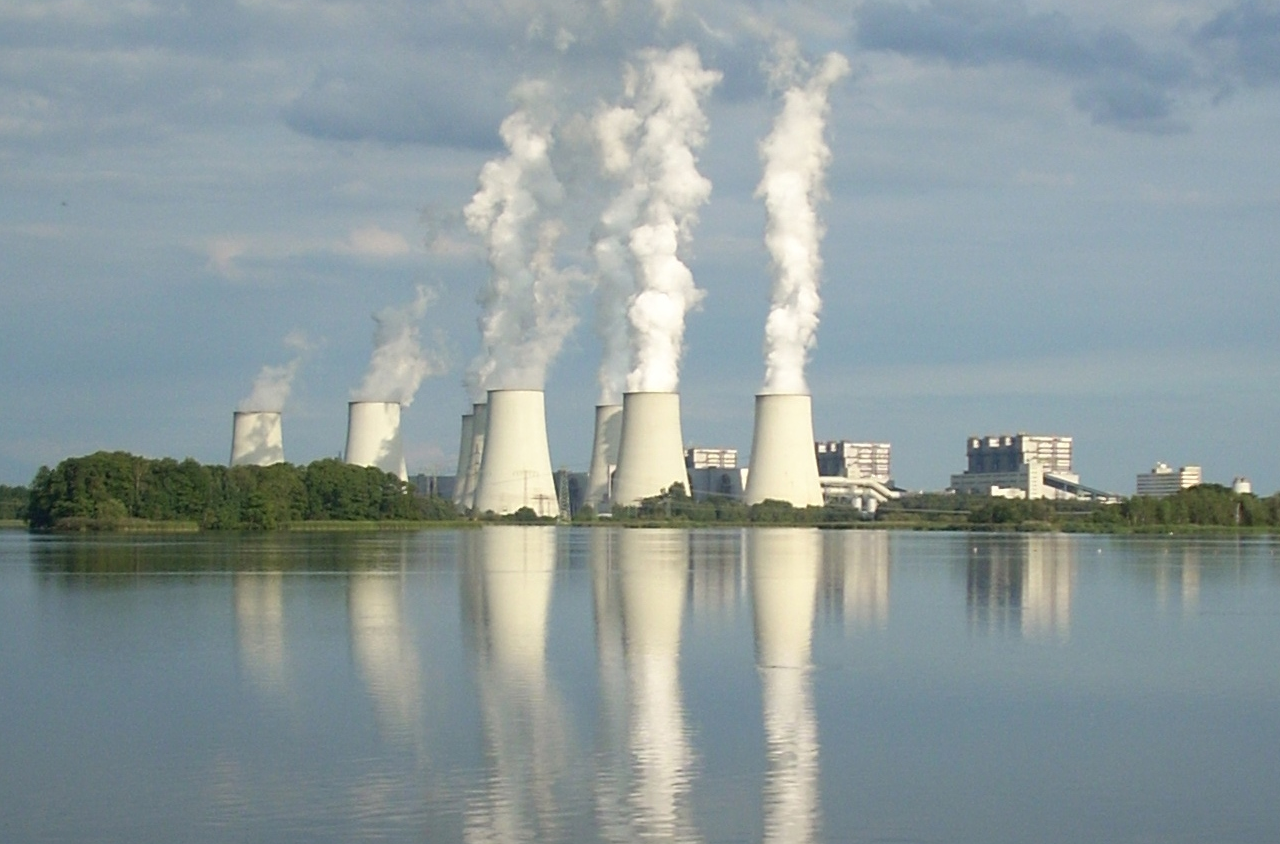Government, mining states, utilities fix path for Germany's coal phase-out
Almost one year after a government-appointed commission agreed in principle on phasing out coal in Germany, the government, mining states and coal plant operators have ironed out the coal exit's details. Economy minister Peter Altmaier said a "breakthrough" had been achieved in high-level talks in Angela Merkel's chancellery during the night and that the "necessary but difficult decisions" ultimately were made in consensus. An agreement had also been found on compensation payments for lignite plant operators. Altmaier said this means Germany would "end the age of coal-fired power production in a plannable and economically prudent manner."
Environment minister Svenja Schulze called the deal "a big step" for climate protection and an important international signal. "We are the world's first country to exit nuclear and coal in a binding way." She stressed that the exit will start immediately, and that a "massive roll-out" of renewables is necessary to make it a success.
But many analysts favouring ambitious emissions reduction as well as environmental activists were not impressed with the agreemment, arguing the proposed pace of the exit is too slow. "The government has driven the coal compromise into the ground. There is no steady emissions reduction between 2023 and 2030," a key point of the coal commission's compromise, said Felix Matthes, research coordinator for energy and climate policy at the Institute for Applied Ecology (Öko-Institut).
Herman Ott of NGO Client Earth said the phase-out law on the table "comes from a different universe to the one where Australia is burning and leaders thrash out the climate question at Davos." Under the agreed deal, Germany would still use almost 6 gigawatts (GW) of coal power in 2038. "To avoid the worst effects of climate change, and to comply with the Paris Agreement, a 2030 deadline is the only acceptable option."

Christoph Bals of NGO Germanwatch criticised the agreement would not honour the coal commission's compromise and that the phase-out would not be carried out smoothly but rather in several large steps. "This deal does not consider that our emissions budget must not be exceeded."
Dave Jones, analyst at British climate NGO Sandbag, said it was "hard to paint this as good news," because decommissioning starts too slowly and finishes too late. With reference to an increase in RWE's share price following the agreement, Hanns Koenig from Aurora Energy Research said: "Whatever one may think about today's German coal exit announcement, investors clearly think it's a good deal for RWE." According to media reports, RWE will receive 2.6 billion euros in compensation payments and operators in eastern Germany 1.75 billion euros.
Simone Peter, head of the German Renewable Energy Federation (BEE) said while the agreement did not meet the coal commission's expectations and will not sufficiently bring down emissions, it should be lauded for the fact that "it sends a clear signal to operators and investors: the age of coal-fired power production in German is over." She urged the government to make good on its promise to boost renewable energy expansion to bolster the coal exit's success.
The head of industrial lobby group VDMA Power Systems, Matthias Zelinger, said the agreement has been a "breakthrough for climate action." Zelinger said the path chosen might be more expensive than market-based solutions. "But it is much more planable regarding structural economic change in the regions and for a plan-based reconfiguration of the energy supply."
The agreement makes Germany the largest economy on the globe with concrete plans to end the use of coal to produce electricity. A swift coal exit is more difficult for Germany in comparison to many other countries, because it is still heavily reliant on the fossil fuel, some of which is still mined domestically, and because it is phasing out nuclear power at the same time in its energy transition (Energiewende) towards renewables.
A government statement on the agreed phase-out roadmap said the expansion of renewable energy sources will be increased to reach the goal of a 65 percent share in power consumption by 2030 in order to compensate for the closure of coal power plants. It will also seek to expand combined heat and power systems and install "two gas plant capacities" to cushion "the vanishing of large quantities of controllable energy."
The government insisted the agreement would honour the coal exit commission's compromise and pave the way for a decommissioning path that the electricity grid "can cope with." According to the agreement, the total lignite capacity will be reduced to 15 GW by the end of 2022, with eight plants operated by RWE in western Germany going offline by that year. The total installed lignite generation capacity stood at about 21 GW in 2019. In a second phase, starting after a two-year hiatus following the completion of Germany's nuclear exit at the end of 2022, capacity will be cut to 8.8 GW between 2025 and 2029. A total of eleven units are to be taken offline, three of which are transferred into security standby. Five of these eleven units are operated by RWE in the west and six by LEAG, a subsidiary of Czech investor EPH, in eastern Germany.
During the last phase starting in the 2030s, the remaining eleven lignite units in the country are scheduled for decommissioning between 2034 and 2038, the year agreed by the coal exit commission as the very last for the fossil fuel in the country. But the agreement also says there will be an assessment in 2026 and 2029 to see whether the last phase of decommissioning in the 2030s can be brought forward by three years. In this case, the coal exit would be completed in 2035 instead of 2038.
For hard coal, meanwhile, an early draft of the coal exit law foresees auctions for operators of plants to take capacity off the grid according to the government's timetable. Hard coal mining in Germany already ended in 2018 and the fossil power source is now much less important to the national economy as it has to be imported.
"The process should already be reviewed in 2023," said Kerstin Andreae, heaf of the German Association of Energy and Water Industries (BDEW). Andreae said the government quickly had to initiate the auctions for hard coal plant shutdowns and make sure that enough renewable energy capacity is brought on the grid to absorb the closed coal plants.
Patrick Graichen of energy policy think tank Agora Energiewende* said the agreement would not end the coal question in the country. "The planned phase-out roadmap will probably be up for debate after the next election."

Finance minister Olaf Scholz said the agreement would ensure that the phase-out's provisions will be implemented over the course of the next two decades "even when the government at the time will be different from the one we have now." The government's plan is to finish the agreement's legislative procedure in the first half of 2020.
Regarding the opening of the controversial new hard coal plant Datteln 4, economy minister Altmaier said that operator Uniper had already obtained a permit for commissioning the plant and that the government gave it the green light due to the "complex" compensation payment scheme. He added that the coal exit commission's proposal to not let the plant go online had been formulated "cautiously" and it ultimately turned out that more CO2 could be saved if older plants were closed earlier instead.
Uniper told Clean Energy Wire that Datteln 4 has entered into trial operation in December 2019 and the company expected to fully commission the hard coal plant in summer 2020 "if the legal situation is clear."
Greenpeace Germany head Martin Kaiser, who was a member of the coal commission, said the decision to open a new coal plant this year clearly showed that the government does not really address the climate crisis. "The first assessment will reveal that Germany can and must exit coal much quicker. This is the only way to stick to the Paris Climate Agreement."
Michael Schäfer of WFF Germany said the plant's commissioning would send a "devastating" signal for climate action, arguing that the government's agreement "annuls the hard-fought coal compromise. The conflict around climate-damaging coal in Germany now will begin anew." He said WWF would seek to massively advocate instruments like a regional CO2 minimum price in the power sector to accelerate the phase-out.

An agreement was also found on conserving Hambach Forest, which RWE planned to clear to make room for a nearby lignite mine. The forest has became a symbolic battle ground for climate activists from Germany and beyond, and will now be spared. However, the neighbouring open cast mine Garzweiler is still going to be needed for supply security reasons, the government said. This means that several adjacent villages will be demolished as planned.
Given the possibility that power prices will rise in the wake of the coal plant shutdowns, energy-intensive companies that compete internationally will receive an "appropriate subsidy" by 2023, the government said. Economy minister Altmaier said that additional government earnings generated with the new CO2 pricing scheme in the transport and buildings sectors would be used to lower Germany's renewable energy surcharge and thereby also the power price. With reference to concerns that the coal exit could compromise the country's power supply security, the economy minister stressed that Germany already today often imports power. However, its current "excess production" of electricity was likely to abate in the wake of the coal phase-out and a "European power market" would develop further. "We're sure that a sufficient power supply can be guaranteed," he added.
Industry lobby group BDI called the agreement "unsatisfactory," arguing it would violate central aspects of the coal commission's compromise. BDI president Dieter Kempf said the commission "for a reason" had stressed that its proposals have to be implemented word by word for the phase-out to remain consistent. "The agreement doesn't make any mention of compensation for higher grid fees, which would have benefitted all power customers." Apart from that, companies could expect higher costs in the European emissions trading system (ETS), which would damage Germany as a location for industrial production.
The agreement also confirmed the structural support payments for coal mining regions in the states of Brandenburg, Saxony-Anhalt, Saxony and North Rhine-Westphalia, and that workers in lignite plants and mines are going to receive so-called "adjustment money" until 2043, a provision that already exists for workers in the hard coal sector. The coal states will receive a total of 14 billion euros until 2038 for direct investments in the regions and the federal government will provide another 26 billion euros to implement "further measures" to strengthen local economies.
Coal worker trade union IG BCE said the agreement would "set the benchmark" for a socially acceptable and climate-friendly transformation of an industry branch. Union leader Michael Vassiliadis said it had achieved to reconcile social security and investments and would "lay the groundwork for linking social and climate justice." Vassiliadis stressed that a quick expansion of renewable energy sources was now necessary, stressing that the phase-out roadmap urgently has to be complemented by a "phase-in roadmap" for renewables.
*Like the Clean Energy Wire, Agora Energiewende is a project funded by Stiftung Mercator and the European Climate Foundation.

